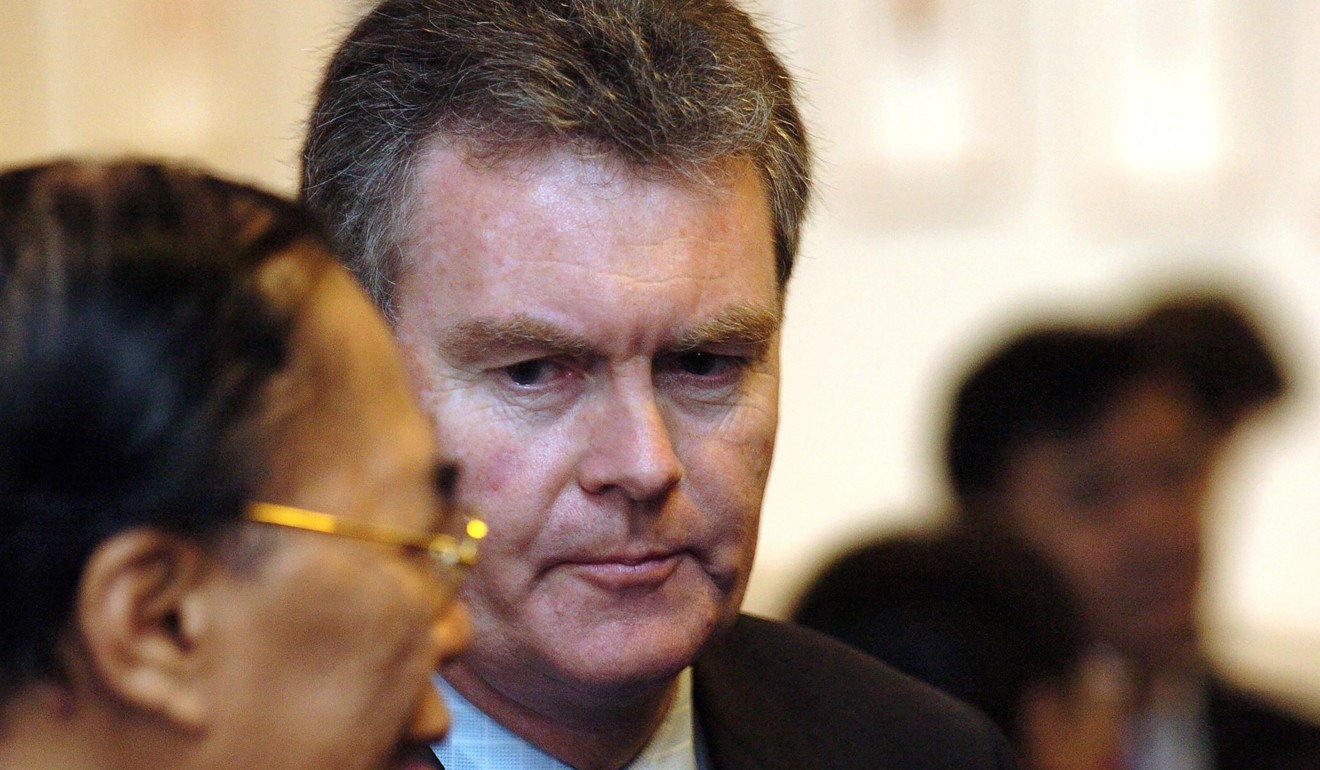Secrecy exemption leaves journalists open to foreign agents: spy boss


Australia's top spy boss has warned journalists would be targeted by foreign agents if they were given a blanket exemption to the Turnbull government's proposed crackdown on espionage.
Duncan Lewis, the head of the Australian Security Intelligence Organisation, also defended a massive expansion of the definition of espionage, which will now include any information that compromises Australia's political and economic interests.
The country's largest media organisations repeated demands for a wide-ranging exemption to new secrecy and anti-espionage laws during a parliamentary inquiry on Friday. But Mr Lewis said reporters would "automatically become a target for foreign intelligence services" if they were carved out of the legislation.
"Broad exemptions for journalists would, in my view, effectively leave a door wide open for foreign spies to exploit, and may have the unintended consequence of increasing the intelligence threat that is faced by our journalists," he said. He said journalists were already commonly targeted by spies because their objectives – digging out government secrets and private information – were similar in nature. He said a recent account given by Australian Financial Review correspondent Angus Grigg, detailing how Chinese operatives tried to recruit him as a spy, was "astonishingly similar" to other cases known to ASIO.
Attorney-General Christian Porter has declined to adopt a blanket exemption for journalists but has beefed up the defences available. First assistant secretary Anna Harmer also indicated more amendments to the bill could be on the way.
The powerful parliamentary joint committee on intelligence and security also heard evidence on Friday from Victorian barrister David Neal, SC, who chaired a steering committee on the original Commonwealth Criminal Code between 1991 and 1995.
In forthright testimony, he criticised the Turnbull government's espionage overhaul as a radical and dangerous expansion of the security state that went well beyond the intent of the law.
That is because the government intends to redefine the "national security" of Australia to include "the country’s political, military or economic relations with another country or other countries".
Anyone who deals with information or an article on such topics, who is reckless to whether it would harm Australia's interests or advantage another country's interests, and who makes the material available to a foreign power, could serve 25 years in jail, Dr Neal said. "This is a radical extension to the definition of national security," he told Fairfax Media.
"Since when does our economic activity come within the purview of espionage? This is like [US President Donald] Trump saying the Trans Pacific Partnership damages our national security.
"We ought to be able to debate Australia’s foreign and economic policy and tell anyone in the world our view on whether our government is misguided in that respect."
That view was backed up by the Human Rights Law Centre, which said the espionage crackdown risked "capturing legitimate international co-operation on global issues, and activities in the regular course of journalism, research or advocacy".
However, Mr Lewis and the Attorney-General's Department defended the expanded definition. It was "very, very defendable" to include economic and political interests, Mr Lewis said, and the definition of national security was "something that does actually change through time".
Mr Porter told Fairfax Media it was "always necessary" for espionage to include political and economic factors, because disruption in those areas could have "grave implications" for Australia.
Fairfax Media also understands people would need to have the "primary purpose" of sharing information with a foreign power in order to be prosecuted under the law. In that event, it is unlikely to capture journalists or even activists writing about an issue. Furthermore, the Attorney-General must consent to any prosecution under Australia's espionage laws.
No comments:
Post a Comment
Comments always welcome!